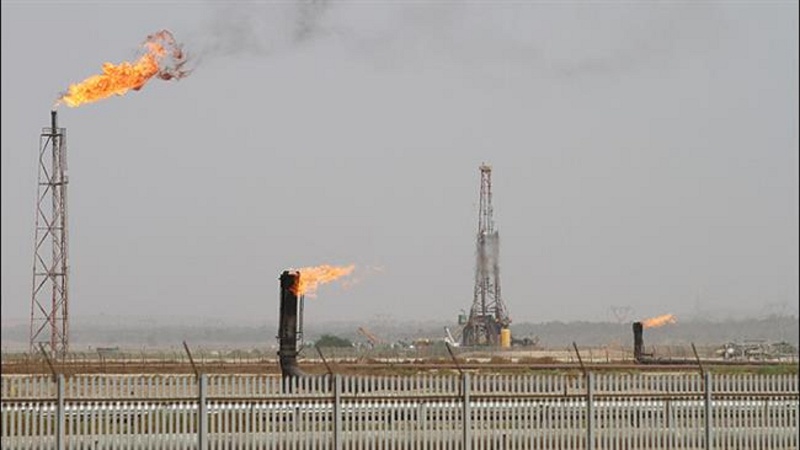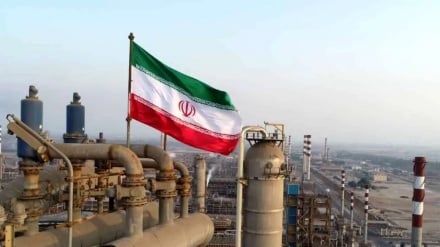How technology is aiding the oil, gas industry
The oil and gas industry is adopting technology at a faster pace with a view to improving its efficiency and remaining relevant in the dynamic digital environment. These companies are revamping their operations, which helps them remain competitive in the modern-day playing field. Technology has helped turn the fortunes of many companies around.
For example, three-dimensional measurement is an innovation that has revolutionized the oil and gas industry. It consists of a 3D scanner together with analysis software. This has made it possible for oil and gas industries to make measurements of oil and gas tools in different forms. It also gives important information on tooling erosion.
Here we present you an article concerning this issue by ‘Elliot Rhodes’, a financial analyst and instructor, titled: “How technology is aiding the oil, gas industry.” The article has appeared on the frontpage of the ‘Asia Times’ website.
The global oil and gas sector exists in an environment characterized by unprecedented opportunity. At the same time, the industry is facing the risk of volatility and other challenges. Diminishing oil prices on the market have heightened the need for carrying out business transformations in the sector with a view of helping companies remain competitive and satisfy the expectations of shareholders and customers. These companies are creating sustainable and cost-efficient operating models by embracing technology.
The oil and gas sector has already experienced digital transformations. Oil and gas is already a multibillion-dollar industry, but going digital could potentially double the profits. The technological drivers and trends adopted by these companies include the following.
Use of robots: Given that the sector is associated with many risks, oil and gas industries have adopted sophisticated robots that can be deployed and operated by humans. The robots have helped inspect and service machines without putting humans into a potentially injurious environment.
For example, the P100 robotic snake arm is designed to carry out an inspection in confined spaces. The Iron Roughneck robot, a product of National Oilwell Varco Inc, does repetitive and dangerous tasks involving connecting the drill pipes on the oil rigs. Vilros, creator of Raspberry Pi chip boards explains these robots have helped cut down the cost of production, especially labor, and also conduct duties that are dangerous with high efficiency.
Use of mobile apps: Over the years, material and asset management has been a key part of the oil and gas industry. The gathering of processing information for inventory management and asset tracking has proved to be inefficient and prone to errors. However, with the development of technology and innovative apps, the industry has benefited by being able to cut costs with customizable asset and material management mobile apps.
Apart from that, depending on the nature of the app, nowadays you can inspect and maintain your equipment, record business assets, check warehouse inventory and also generate damage and loss reports. These are just some of the features that apps allow you to do, but there are many more.
Cloud computing: Day Digital website explains when creating the software, development companies wanted to improve how data is managed. Cloud computing is a significant aspect of many companies that are undergoing a digital transformation.” It is important to note that cloud computing can help harness large amounts of data, and do the analysis through automation, hence reducing the expense of handling company data while also mitigating the risk of losing data. Cloud computing also ensures that computing capabilities, transparency, and accuracy are achieved in the shortest time possible.
Artificial intelligence: Artificial intelligence has two popular applications: intelligent robots and virtual assistants. To begin with, intelligent robots have AI capabilities that help in exploring and production of hydrocarbons. The technology is designed to increase cost-effectiveness and productivity as it reduces worker risk. Virtual assistants, on the other hand, are online platforms where customers navigate product processes and databases using natural languages.
By developing AI, app companies had the environment in mind, and AI has helped in hydrocarbon exploration by improving the ability of mapping and identification of petroleum deposits beneath the surface of the Earth. AI has the capability of detecting equipment failure and to intervene. These failures range from gas leaks to simple equipment failure.
3D scanning: Three-dimensional measurement is an innovation that has revolutionized the oil and gas industry. It consists of a 3D scanner together with analysis software. This has made it possible for oil and gas industries to make measurements of oil and gas tools in different forms. It also gives important information on tooling erosion.
The Internet of Things: IoT refers to the interconnections of computing devices embodied in objects, helping them send and receive data. Oil and gas companies have embraced this technology for various reasons.
First, success in this industry is dependent on the prompt production of accurate data. The integration of IoT in production has help capture data in real time by the use of automated communication systems and sensors that enable oil companies to assemble data from the assets and make informed deliberations.
Adopting IoT also significantly reduces the impact of oil and gas effects on the environment. It leads to reduced energy use, emitting less carbon into the environment and avoiding oil spillage.
The oil and gas industry is adopting technology at a faster pace with a view to improving its efficiency and remaining relevant in the dynamic digital environment. These companies are revamping their operations, which helps them remain competitive in the modern-day playing field. Technology has helped turn the fortunes of many companies around.
Technology has helped find stable and sustainable wells below the surface. Since technological advances have positively impacted the petroleum industries, app development companies should try to come more advanced innovations that will increase efficiency even further.
ME/SS



